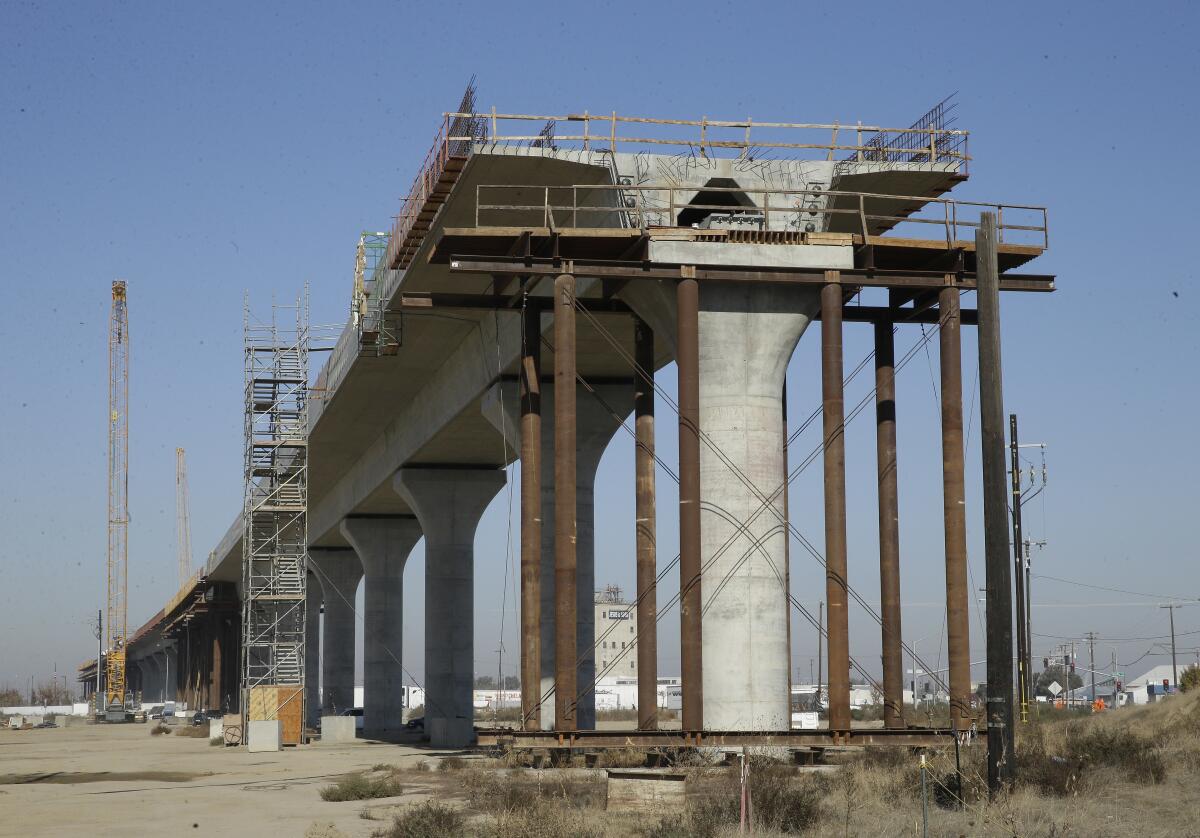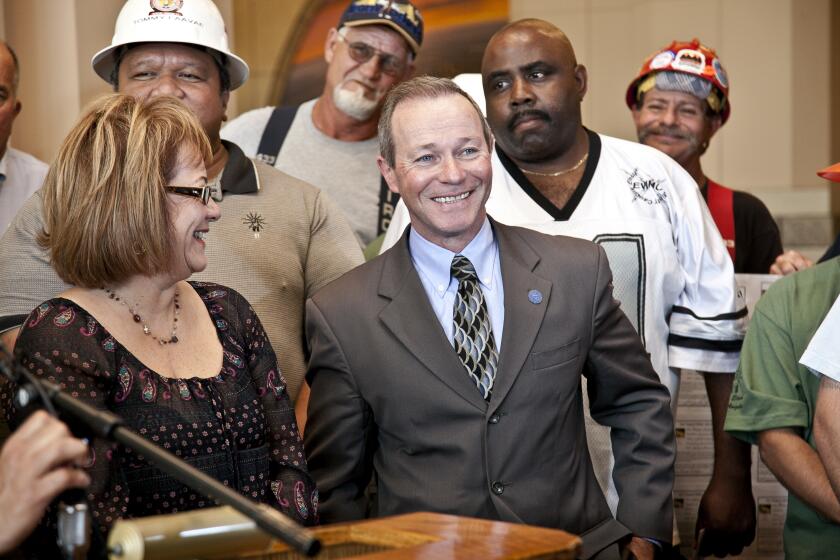Nearly $1 billion restored to California bullet train after Biden officials reverse Trump

- Share via
A $929-million federal grant for the California bullet train project was restored Thursday, reversing a decision by the Trump administration to terminate the funding.
The grant was restored under a settlement of a suit brought by California, asserting the U.S. Department of Transportation acted improperly in taking away the money in May 2019.
The action was widely anticipated in recent weeks after statements by President Biden’s administration that it was working on a settlement. The Federal Railroad Administration formally announced the settlement Friday morning.
In a written statement, the agency said the settlement “reflects the federal government’s ongoing partnership in the development of high-speed rail” and “is an important step in advancing an economically transformational project in California.”
The action appears to signal that the Biden administration will back efforts by the California High-Speed Rail Authority to obtain a portion of the federal infrastructure package that is being negotiated, though the actual amount of money for the rail project is highly uncertain.
“Tonight’s action by the federal government is further proof that California and the Biden-Harris administration share a common vision — clean, electrified transportation that will serve generations to come,” Gov. Gavin Newsom said in a statement.
Rail Authority CEO Brian Kelly called it “an important step in advancing an economically transformational project.”
Organized labor has provided crucial support for the high-speed rail project, discouraging any straying from California’s current plan.
House Speaker Nancy Pelosi (D-San Francisco) also weighed in, saying the grant restoration was a “vote of confidence” that signals a restored working relationship between the federal government and California.
Gov. Gavin Newsom is under pressure to allocate a significant amount of unexpected tax revenue to the bullet train project as a signal to federal officials that the state is fully committed, according to persons close to the negotiations.
If it occurs, it would be the first time that the state has allocated a large amount of general fund revenues to the effort. The allocation could be part of a package with Biden’s proposed infrastructure investments.
At the same time, Newsom is putting pressure on the Legislature to appropriate all of the remaining $4.2 billion left from a 2008 bond issue for the project. But many lawmakers want to hold back some of the money in an effort to impose stricter controls on the project’s performance.
Some bullet train advocates believe $10 billion or more from the state and federal government could be added to the project, allowing an expansion of the current construction. But even that much money would not close a roughly $80-billion shortfall needed to connect Los Angeles to San Francisco.
Earlier this week, the House Transportation and Infrastructure Committee held a marathon 19-hour hearing on infrastructure, which included an extended discussion of the California project.
The restoration of the $929 million does not reflect an actual windfall for the program, since the state rail authority never removed the money from its budget of forecast revenues.
The grant was originally made in 2010 after other states backed out of high-speed rail projects and declined to take the federal support. The California project already had won another $2.5-billion grant from the Obama administration’s stimulus program, known as the American Recover and Reinvestment Act.
The Trump action to take back the money was highly controversial, and federal grant experts said such terminations were rare in cases that did not involve fraud but were merely behind schedule.
Ronald Batory, then chief of the Federal Railroad Administration, cited California’s multiple failures to forecast accurate schedules, among other problems, in taking the action. Along with House Republicans from California, Trump officials were highly critical of the California project, with former Transportation Secretary Elaine Chao calling it a “bait and switch” on promises made to taxpayers.
Chao and Trump had issued an even bigger threat, to claw back the much larger $2.5-billion grant that had already been spent. Despite such rhetoric, the Trump administration never made an attempt to get back the funds.
The $929 million is part of a planned $22.8-billion effort aimed at building a 171-mile partial operating system between Bakersfield and Merced, as well as completing environmental planning and making some high-speed rail investments in Southern California and the Bay Area.
More to Read
Sign up for Essential California
The most important California stories and recommendations in your inbox every morning.
You may occasionally receive promotional content from the Los Angeles Times.












